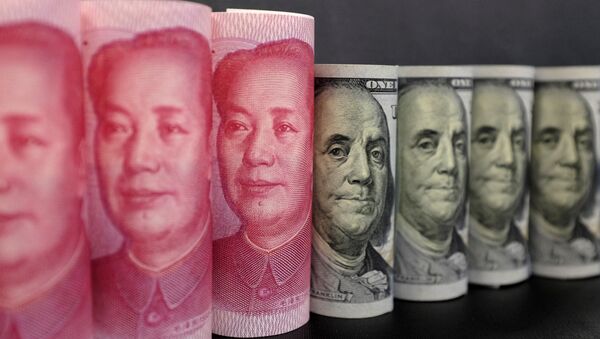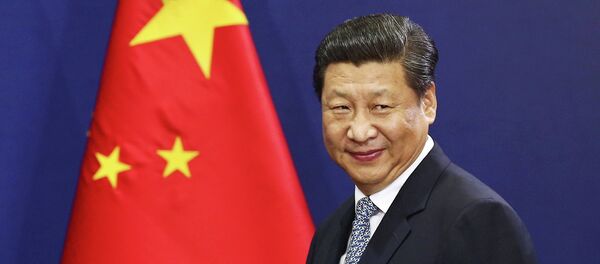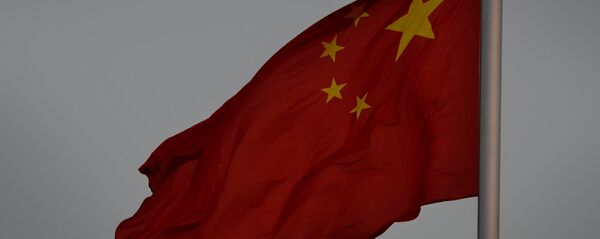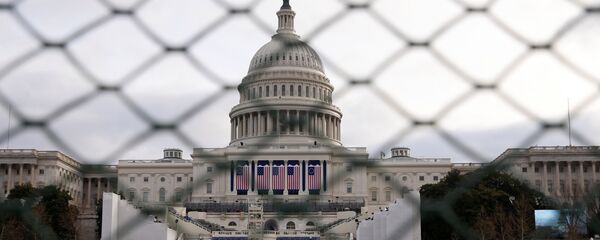The Chinese leadership and US President Donald Trump are testing the waters before starting a serious dialogue about their future relationship, Nikita Maslennikov, an expert at the Institute of Modern Development, told Sputnik Chinese.
As Bloomberg noted Wednesday, Trump is unlikely to fulfill his election promise and crackdown on China over its alleged currency manipulation.
"Donald Trump probably hasn't followed through on campaign pledges to label China a currency manipulator because the yuan's been stronger than he anticipated," the media outlet reported citing Iowa Governor Terry Branstad, Trump's pick for US Ambassador to China.
This remark was made just a day after the US President accused China and Japan of "playing the money market."
"We sit there like a bunch of dummies," Trump said Tuesday.
In response, Japanese Prime Minister Shinzo Abe immediately signaled his willingness to discuss the problem with Washington.
In contrast to Tokyo, Beijing stayed cool, calm, and collected and thus has purportedly won this battle of nerves.
"[Trump's] a strong leader and China's got a strong leader, and I know them both very well. Hopefully we can find a way to do what's good for America, but can also be a win-win situation that's beneficial for China," Branstad told the media outlet Wednesday.
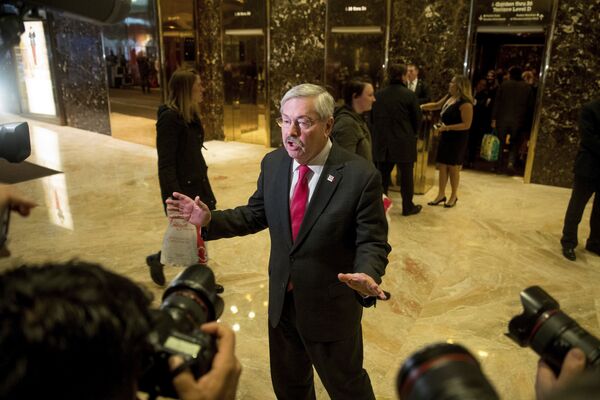
According to Maslennikov, this sudden shift in rhetoric means that both Beijing and Washington are seeking ways to establish working relations in a new political environment.
"They are exchanging views and signals before beginning a serious discussion about the future [relationship] which [would be built] in accordance with both Trump's pre-election promises and China's opportunities," Maslennikov said.
The expert doesn't rule out that the US may increase tariffs on Chinese goods. However, he believes that they would be raised by 5 percent, not 45 percent as Trump promised.
"The idea behind these actions is clear: 'We raise taxes precisely to the extent of your unwillingness to open your market'," Maslennikov explained.
Yuri Rubinsky, Director of French studies Center at the Institute of Europe of the Russian Academy of Sciences (RAS) echoes Maslennikov. He believes that the two countries are likely to adopt a quid pro quo principle in their bilateral relations.
However, Rubinsky noted that Washington and Beijing have yet to reach common ground on the free market issue.
Chinese President Xi Jinping positions himself as a protector of free market principles, while the Trump administration is mulling protectionist measures to boost local businesses.
"In Davos, Xi Jinping was acting as the leader of the second economy in the world and the first world trading power. He also positioned [himself] as a defender of the achievements of free trade. Moreover, he stated openly addressing the US that there will be no winners in the trade war and everyone will lose. This announcement was welcomed by virtually all the participants in the World Economic Forum," Rubinsky stressed in an interview with Sputnik.
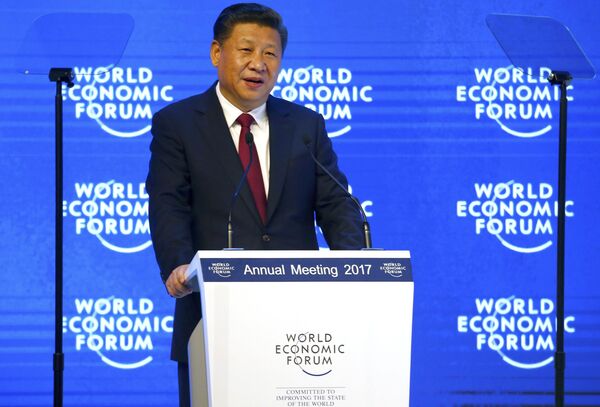
For his part, retired Maj. Gen. Pavel Zolotarev, the deputy director of the Institute for US and Canada Studies at the Russian Academy of Sciences (RAS), highlighted the importance of strong economic interests binding the two powers together.
Zolotarev pointed out that Branstad is the right man in the right place to address these issues.
"The relationship between China and the US is founded on a solid economic basis," he said, adding that regardless of saber-rattling and muscle-flexing demonstrated by both sides, they are highly unlikely to cross the red line.
On Saturday, Bloomberg reported that the White House "sees no need for dramatic military moves" in the South China Sea, citing Defense Secretary James Mattis.
"What we have to do is exhaust all efforts, diplomatic efforts, to try and resolve this properly. Our military stance should be one that reinforces our diplomats," Mattis said and added that "at this time we do not see any need for dramatic military moves at all."
Speaking to Sputnik Chinese earlier this week Maslennikov pointed out that China is also sending veiled signals to Washington demonstrating its willingness to start a dialogue.
According to the analyst, Beijing wants to avoid waging either trade or currency wars.
"As of yet Trump has not done anything explicitly anti-Chinese, moreover, he has made it clear that he does not want to use such an 'irritant'… as accusations of currency manipulation," the Russian expert said.
"In the coming year it is necessary for the countries' [currency] regulators to work closely to find out what is actually happening with the dollar and the yuan," he suggested.
What is more important, in December 2016 voices emerged in Trump's camp signaling that American companies are interested in participating in the China-led Silk Road project. At the same time a signal was sent of possible US entry into the Asian Infrastructure Investment Bank (AIIB), Maslennikov highlighted.

